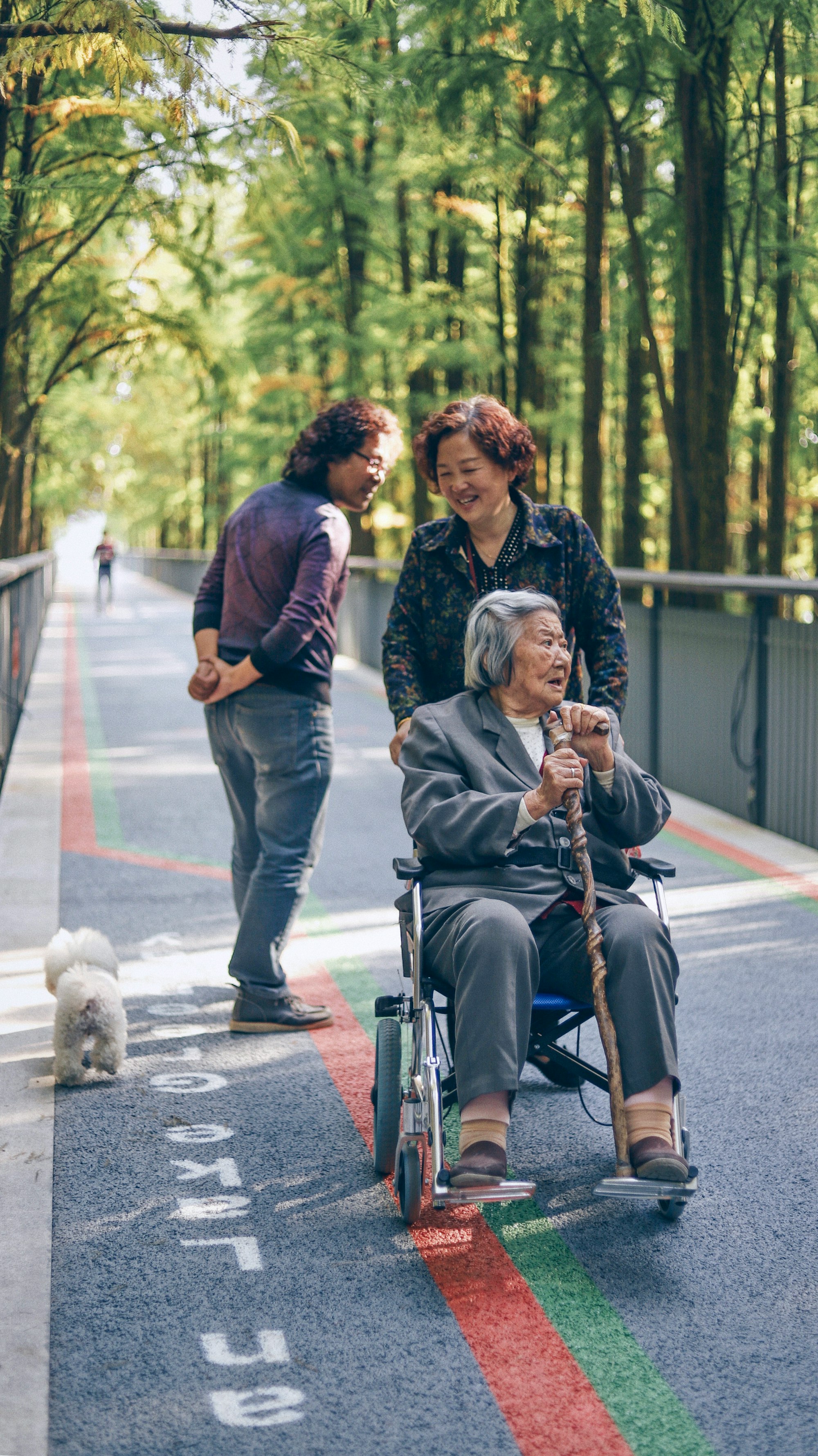What are the Four Causes of Difficult Behavior in Seniors?

Introduction: Understanding Difficult Behaviors in Seniors
As our loved ones get older, it can be difficult to recognize when they are exhibiting behaviors that were previously not present. Difficult behavior in seniors is defined as any type of behavior that is disruptive, impulsive, and out of character for the person. Such behaviors can range from being angry, verbally or physically aggressive, or emotionally unstable.
The purpose of this guide is to explain the four main causes of difficult behaviors in seniors. We will look at physical changes, cognitive changes, emotional changes, and environmental changes and how these can potentially lead to behaviors that may initially seem confusing. We will also provide examples of difficult behaviors associated with each cause and strategies to identify them. Finally, we will explore strategies for creating solutions to address difficult behaviors in seniors from medical professionals, family members, and other caregivers.
When caring for an older adult, it’s important to understand the underlying causes of any difficult behaviors they may be exhibiting. While every individual is unique, there are four main causes of difficult behavior in seniors: physical changes, cognitive changes, emotional changes, and environmental changes. Understanding the root cause of a senior's behavior is the first step to helping them manage it.
Physical Changes
Physical changes can be one of the most common causes of difficult behavior in seniors. As we age, our bodies become more prone to aches, pains, and other medical conditions that can cause agitation. Chronic pain can often affect mood and lead to frustration and irritability. Medication side effects, such as fatigue, confusion, and drowsiness, can also contribute to challenging behavior.
Cognitive Changes
Cognitive changes can also result in difficult behavior in seniors. Cognitive decline is a normal part of the aging process, and seniors may experience memory problems, confusion, difficulty making decisions, and difficulty understanding complex concepts. These changes can lead to distress, fear, and irritability.
Emotional Changes
Emotional changes can also cause difficult behavior in seniors. Seniors may feel frustrated, angry, or even depressed due to changes in relationships, lifestyle, and health. The loss of independence can be especially difficult for seniors and lead to feelings of isolation and loneliness.
Environmental Changes
Finally, environmental changes can lead to difficult behavior in seniors. Moving from a familiar home to a new living arrangement or changing caregivers can cause disruption and confusion. Additionally, unfamiliar surroundings, loud noise, and bright lights can all contribute to distress and agitation.
Physical Changes
As people age, their physical abilities can naturally decline. They may experience changes in mobility, vision, hearing, and even digestion. Seniors may also suffer from chronic pain, lack of energy, or other age-related conditions that can impact their ability to engage in everyday activities.
These physical changes can cause seniors to develop difficult behaviors, such as becoming easily overwhelmed, agitated, or irritable when completing physical tasks. They may become frustrated with their limitations or feel anxious about safety, leading to decreased cooperation and AL patients may become increasingly impatient and lack the energy to complete simple tasks. Additionally, seniors may find it difficult to express their needs if they have difficulty communicating due to language or sensory challenges.
Family members and caregivers can support seniors with physical changes by being patient and understanding. Simple modifications can make a big difference - for example, providing a foam tub grip, a shower chair, or strategically placed grab bars can help seniors with mobility feel more confident and independent.
Cognitive Changes
One of the most common and significant causes of difficult behaviors in seniors is cognitive changes. Cognitive changes refer to changes in a person's memory, attention, language, judgment, and decision-making ability. These changes often occur as people age, and can be exacerbated by conditions like dementia or stroke. Difficult behaviors in seniors that can be caused by cognitive changes include disorientation, confusion, difficulty following instructions, and difficulty communicating.
It is important to understand that cognitive changes are often not immediately noticeable. They can occur gradually and it can take some time to distinguish them from other causes of difficult behavior in seniors. There are certain signs to look out for that may indicate cognitive changes are at play. Memory loss is one of the most common signs. If a senior is forgetting important appointments, conversations, or events, this could indicate that they are experiencing cognitive changes.
It is also important to pay attention to how a senior behaves in different situations. If their behavior is significantly different when they are interacting with family versus strangers, or when they are in unfamiliar environments, this could indicate cognitive changes. Other signs of cognitive changes include changes in motor skills, trouble understanding complex tasks, or difficulty speaking or recalling words.
Emotional Changes in Seniors
One of the most common causes of difficult behavior in seniors is emotional changes. As we age, it is common to experience a range of intense emotions such as frustration, confusion, loneliness, and sadness. These can be difficult to cope with and can lead to challenging behaviors.
It is important for family members, caregivers, and medical professionals to be aware of these issues and take steps to address them. Understanding and respecting a senior’s emotional state is essential for providing appropriate care. Creating an open dialogue and creating safe spaces for seniors to express their feelings can help identify potential sources of distress and provide support in dealing with them.
It is also essential to keep in mind that even seemingly minor changes in environment and routine can cause emotional turmoil. Even small shifts in an individual’s daily life can cause agitation or disorientation, so it’s important for those caring for seniors to be aware of this and understand how to manage these reactions.
Environmental changes can significantly affect the behavior of seniors. The environment that seniors live in, including their home and social environment, can have a major impact on how they act. In some cases, seniors may feel isolated or neglected by family members, and this can lead to depression and other emotional issues. Similarly, changes in the physical environment can trigger confusion or anxiety, such as when moving to a new home. Additionally, environmental stressors, such as noise or busy spaces, can also contribute to challenging behavior in seniors.
When it comes to difficult behavior in seniors, it is important to recognize the role that environmental changes can play. Family members should pay close attention to any changes in the senior’s home or social environment, and take action to reduce stressors. Creating a calm and supportive atmosphere for the senior can help them feel safe and comfortable, which in turn can help to reduce difficult behavior. It is also essential to talk to the senior about any changes in their environment, and how it is impacting them, to ensure they feel included and supported.
Understanding difficult behavior in seniors can be challenging, and it is important to recognize the potential causes. Identifying the behaviors and recognizing some possible solutions can help manage the situation.
The four causes of difficult behavior in seniors are physical changes, cognitive changes, emotional changes, and environmental changes. It is important to understand the potential causes of a difficult behavior before trying to address it.
It can be difficult to watch a senior loved one struggle with difficult behaviors, and even more challenging to determine the underlying cause of those behaviors. In order to create strategies for successful solutions, it is important to first understand the different causes of behavior changes in seniors and how they can impact daily life.
In this section, we will discuss effective strategies for addressing difficult behavior in seniors, including approaches from medical professionals, family members, and other caregivers. It can often take a collaborative effort to develop an effective plan for treating these behaviors, so understanding these causes first can help to create a comprehensive strategy to support your loved one.
Physical Changes: Many seniors will experience changes to their physical health as they age, which can impact their environment and behavior. These changes can include a decrease in mobility, strength, vision, hearing, and cognition. As physical abilities diminish, seniors may become frustrated or resistant to participating in activities that had once been enjoyable.
Cognitive Changes: Cognitive changes can range from minor memory loss to early stages of dementia. These changes can lead to confusion, difficulty making decisions, and difficulty with communication. As cognitive impairment progresses, these behaviors can become more challenging to manage and can create an unsafe environment for the senior.
Emotional Changes: As we age, we may experience shifts in our emotional well-being. Anxiety and depression can cause fear and aggression that can manifest in forms of difficult behavior in seniors. In addition, some seniors may experience feelings of loneliness and isolation due to their reduced contact with friends and family.
Environmental Changes: Environmental changes can also trigger difficult behaviors in seniors. Moving to a new home, facing a death of a friend or family member, and dealing with chronic or serious illness can all cause changes in behavior that can be difficult to adjust to.
By understanding the four key causes of difficult behavior in seniors, family members and other caregivers can better prepare themselves to develop solutions that are tailored to the root cause. In the next section, we will discuss specific examples of difficult behavior and strategies for identifying and supporting seniors through this transition.
It is important to understand the causes of difficult behavior in seniors. This guide has identified the four most common causes – physical changes, cognitive changes, emotional changes, and environmental changes – and explored how they can lead to different types of difficult behavior. Through understanding the root causes of such behavior, family members, care givers, and medical professionals can work together more effectively to address it.
It is also important to be aware of different examples of difficult behavior that seniors may exhibit as a result of these causes and strategies for identifying them. All of these can affect a senior’s quality of life in different ways, so it is essential to create solutions that are tailored to each individual’s needs. These solutions could range from medical interventions to support from family members and other caregivers.
Now that we have explored the causes of difficult behavior in seniors, as well as appropriate ways to identify and address them, we can conclude that this is a complex issue that requires specialized intervention and support. Understanding the causes is the first step in helping seniors manage and reduce their difficult behaviors. We hope that this guide has helped you gain a better perspective on the issue and encouraged you to take action to support seniors in need.
When it comes to dealing with difficult behaviors in seniors, it's important to have resources available to help. Fortunately, there are many online resources as well as organizations and professionals that can provide support.
When looking for resources on difficult behavior in seniors, it is important to first understand what type of behavior is being exhibited. Is the person exhibiting physical changes, cognitive changes, emotional changes, or environmental changes? Identifying the root cause of the behavior can help to find specific resources that may be helpful.
You might also like this article:


